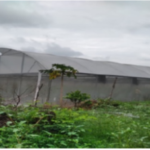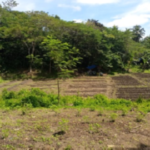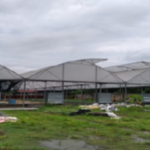In response to the continuing needs of people affected by the coronavirus pandemic in the Philippines, the community at the MSC Centre for the Poor initiative have established a new campaign which aims to help those in real and urgent need in a sustainable way.
The new campaign calls for participants to “Be a Food Security Frontliner,” encouraging supporters to respond to the needs of the poor and hungry while protecting and nurturing the land and the environment.

“People go hungry not because there is insufficient food on our farms, but because they are poor.”
“With two years of the COVID-19 pandemic and more years of uncertainty predicted to come, we have seen the gradual collapse of the Philippine health system, our domestic economy, social services, environment, and food system,” writes Fr Richie Gomez MSC, community leader at the MSC Centre for the Poor. “Soon, we will be witnessing a massive escalating hunger crisis due to food insecurity. People go hungry not because there is insufficient food on our farms, but because they are poor. Agricultural products go to those with the greatest capacity to pay, not to the most vulnerable people. As our farmers say, ‘Kami ang nag tanim, kami ang walang makain’ (‘We plant, but we have nothing to eat’).”
In addition to the COVID crisis, several other factors have severely impacted on the ability of poorer families to put food on the table. “Violent conflicts here in Mindanao, extreme weather due to climate change, biodiversity loss, and the economic downturn cause by the COVID-19 pandemic and varying degrees of community lockdowns have worsened the situation of vulnerable people,” explains Fr Richie. “In addition, water becomes increasingly scarce for smaller farmers when bigger investors use it in intensive irrigation schemes. All of these crises limit poorer people’s capacity to buy food, or to produce enough to be self-sufficient.”
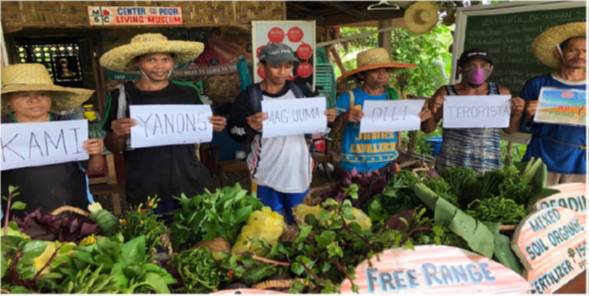
“Let us not wait for the situation to further deteriorate, when it is already too late to act.”
“Let us not wait for the situation to further deteriorate, when it is already too late to act,” Fr Richie encourages. “Let us create a food system that protects the health of both humans and the environment – providing a healthy diet for 120 million Filipinos without destroying the planet.”
The food system is one of the singular most important social and economic concerns in the Philippines, where some of the most vulnerable people, including those in farming and fishing, are ultimately the foundation. Now, the MSC Centre for the Poor Agriculture Cooperative (MSC-CEPAGCO) is focusing on building its capacity for “a more resilient, diverse model of farming and food production… based on community decisions and open-source ideas can help to develop local food systems”, eliminating dependency on larger corporate endeavours.
The Food Security Frontliner enterprise looks at developing alternative models of agricultural production and marketing, which focus on being sustainable and fair as well as generating income. This will involve “the organisation of people’s cooperatives, the use of organic agriculture and modern technology for post-harvest production, ‘the farm-to-table’ marketing strategy, and the continuing formation of the Spirituality of the Heart through the works of Justice, Peace, and Integrity of Creation”.
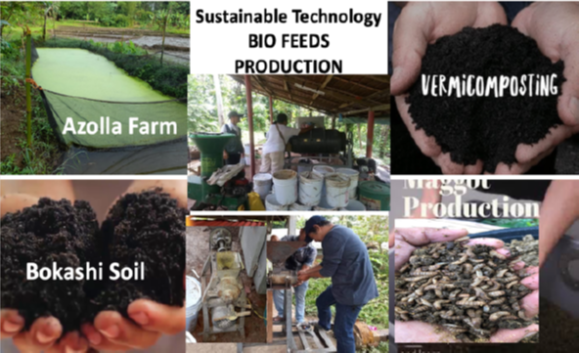
“We will be green producers, bringing our produce to green consumers.”
Pope Francis has highlighted the need for a fair-trade system in an “inclusive economy,” and this is the essential aim of the Food Security Frontliner campaign. “This means that no-one will be left out in the cycle of economy,” says Fr Richie. “We will have a daily harvest from our coop members’ farms; we will be green producers, bringing our produce to green consumers.”
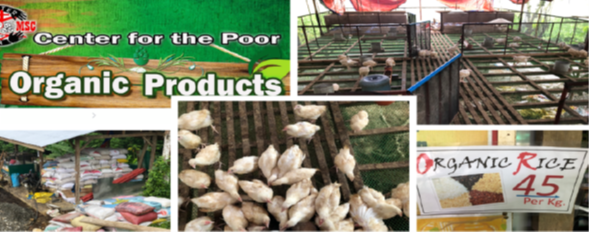
Together with disadvantaged youths on their scholarship programme, the MSC Centre for the Poor Agriculture Cooperative is implementing a programme on Environmental Management Systems, and creating income-generating projects to raise the quality of life for both rural and urban communities who use the two MSC Centre for the Poor locations, one in Butuan City and one in Del Monte Agusan del Sur.
“Our model farm in Del Monte Agusan del Sur has just been approved by the Department of Agriculture as a learning site for organic agriculture, and is soon to be a farm school for the Technical Education and Skills Development Authority,” Fr Richie says. “We want to empower small-scale farmers, the indigenous Lumad community, rebel returnees, people struggling with drugs and addiction, disadvantaged youths, and repatriated overseas Filipino workers.”
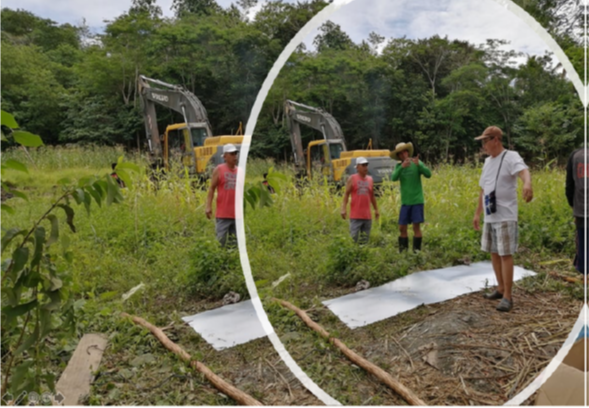
Currently, the MSC Centre for the Poor Agriculture Cooperative is working to raise funds to build three large greenhouses for organic vegetable production at the MSC Centre for the Poor Living Museum in Del Monte, Talacogon Agusan del Sur, in the Philippines, at a cost of 5,000,000 Philippine pesos, or approximately €85,500. This investment will provide the prospect of self-sufficiency and food security for generations to come.
- The MSC Centre for the Poor Agriculture Cooperative is working to raise funds to build three large greenhouses for organic vegetable production at the MSC Centre for the Poor Living Museum in Del Monte, Talacogon Agusan del Sur, in the Philippines.
- The MSC Centre for the Poor Agriculture Cooperative is working to raise funds to build three large greenhouses for organic vegetable production at the MSC Centre for the Poor Living Museum in Del Monte, Talacogon Agusan del Sur, in the Philippines.
- The MSC Centre for the Poor Agriculture Cooperative is working to raise funds to build three large greenhouses for organic vegetable production at the MSC Centre for the Poor Living Museum in Del Monte, Talacogon Agusan del Sur, in the Philippines.
“As an accredited cooperative organisation by the Cooperative Development Authority, our focus right now is to produce affordable, healthy food for all, producing healthy/organic farm products on a day-to-day basis.”
“This initiative is a concrete response to the needs of the poor,” concludes Fr Richie. “It is a concrete action that needs the support of our mission friends everywhere, in whatever capacity, including prayers and goodwill to promote a spirit of solidarity.”
